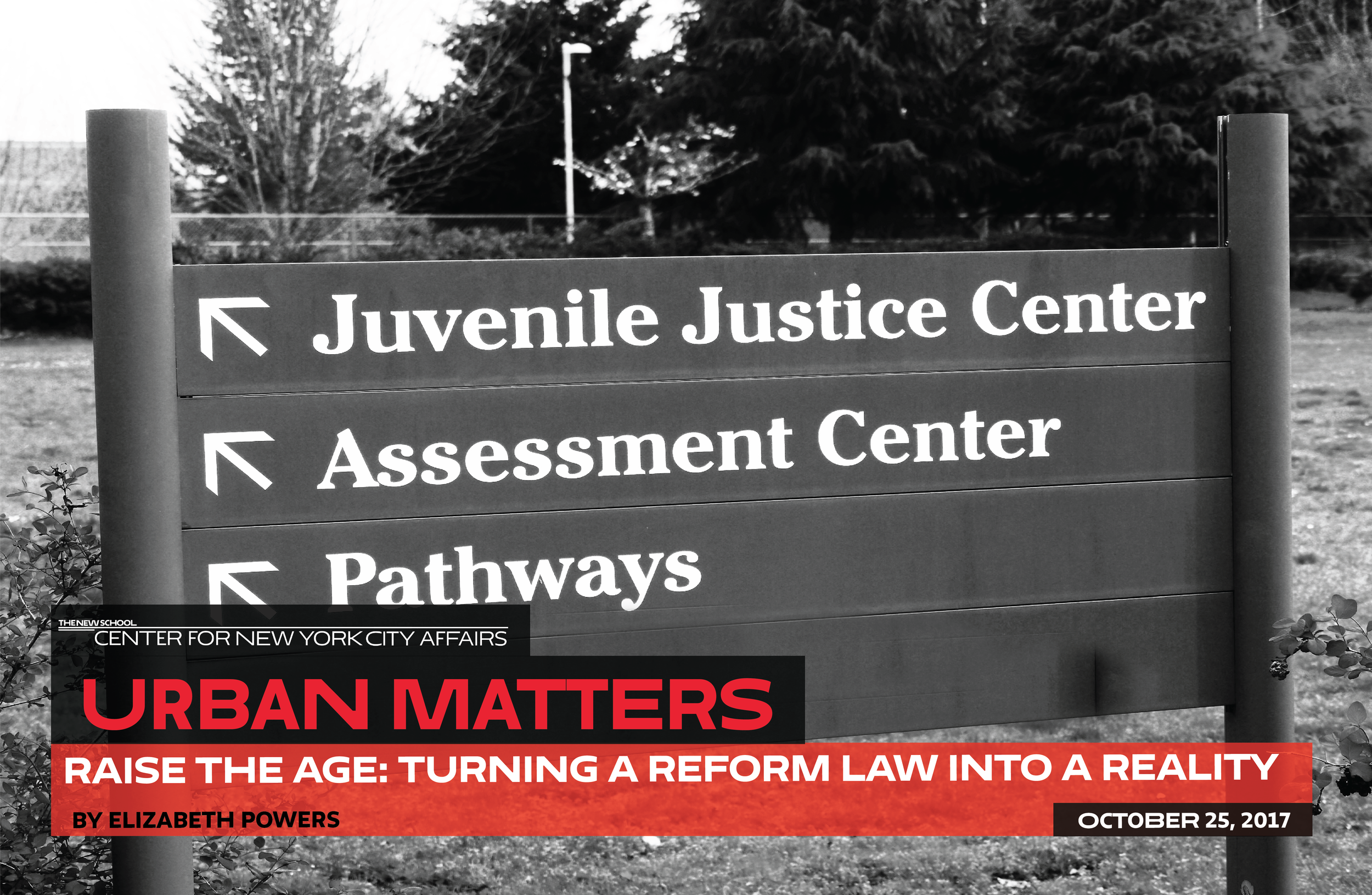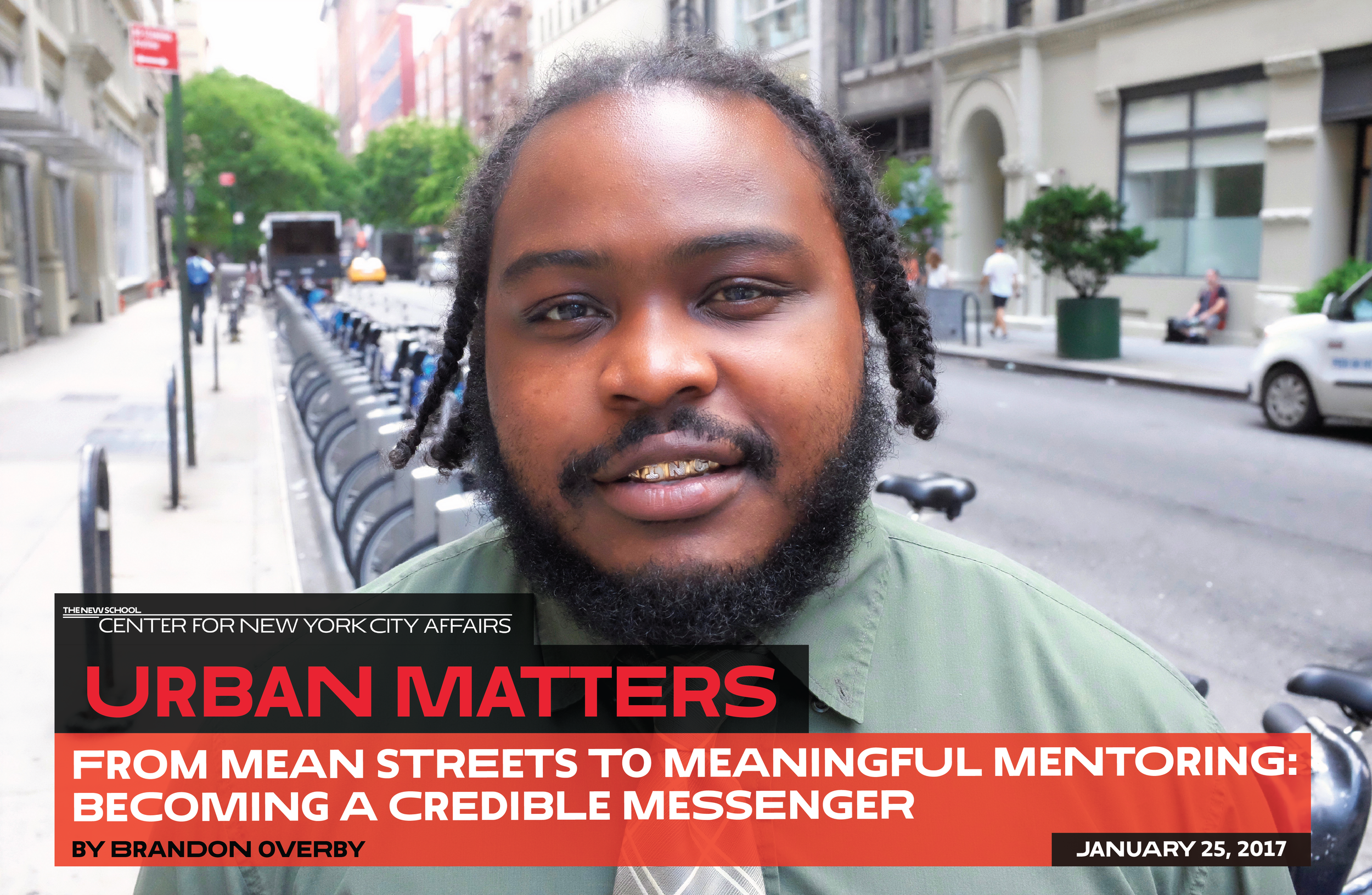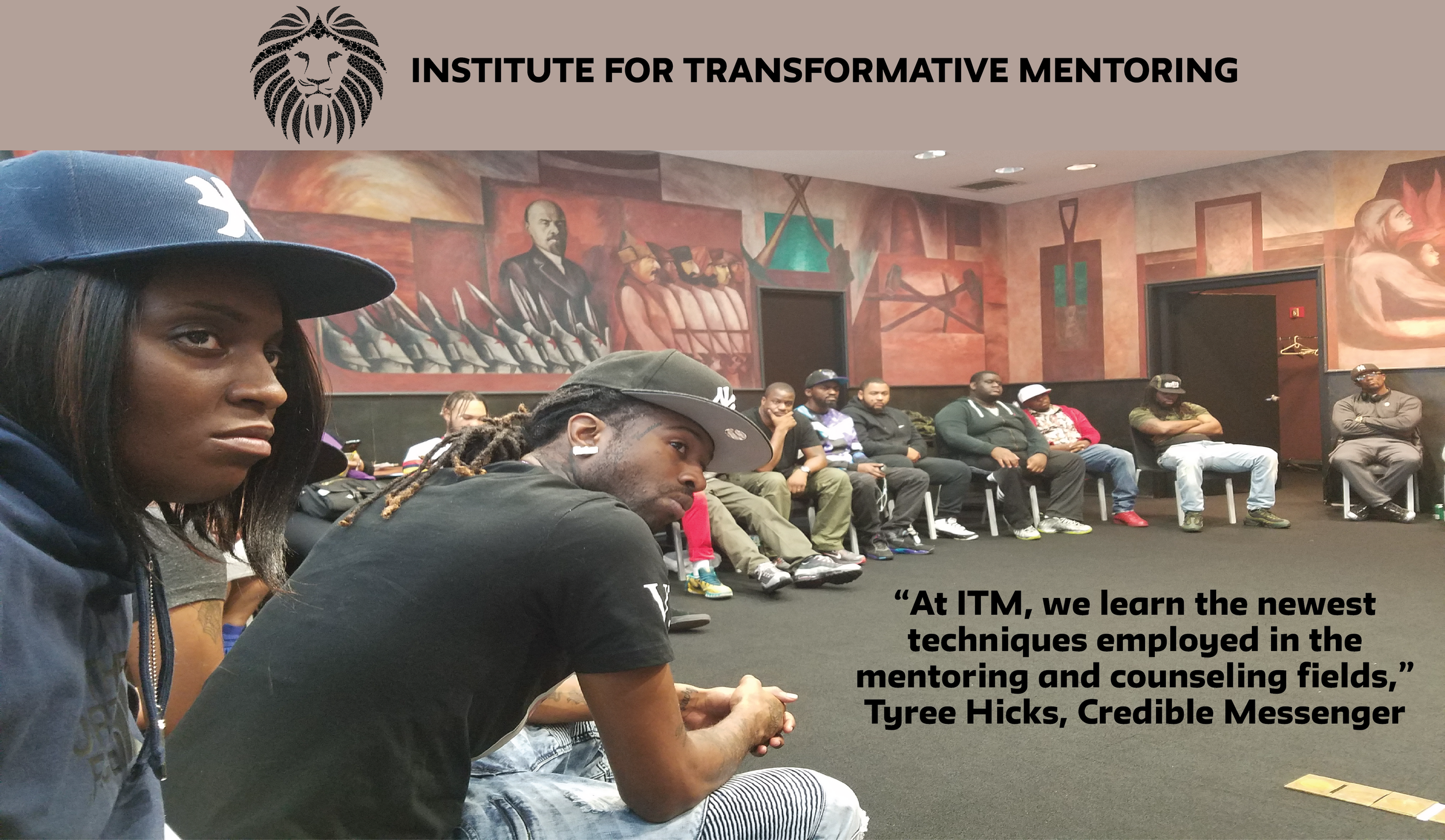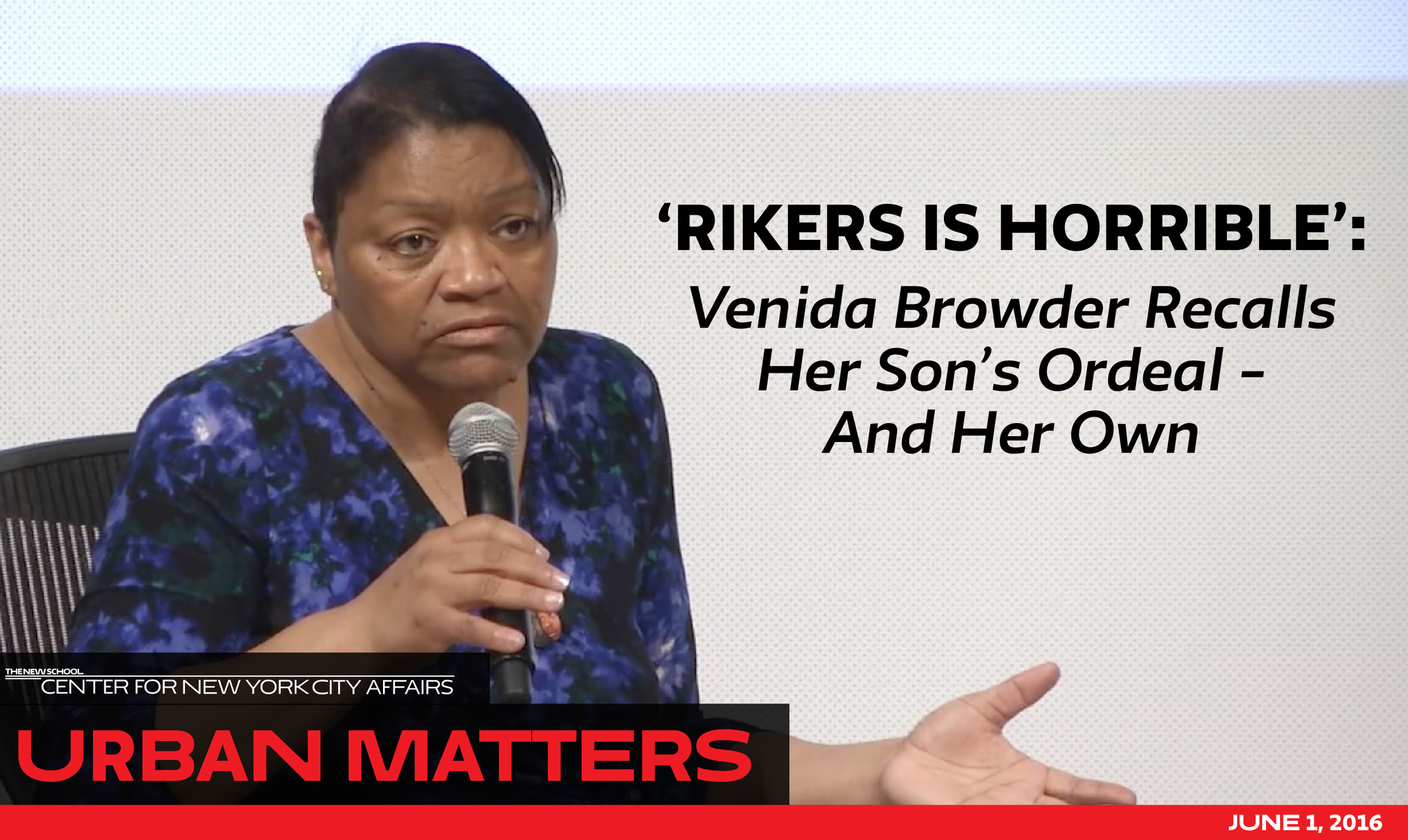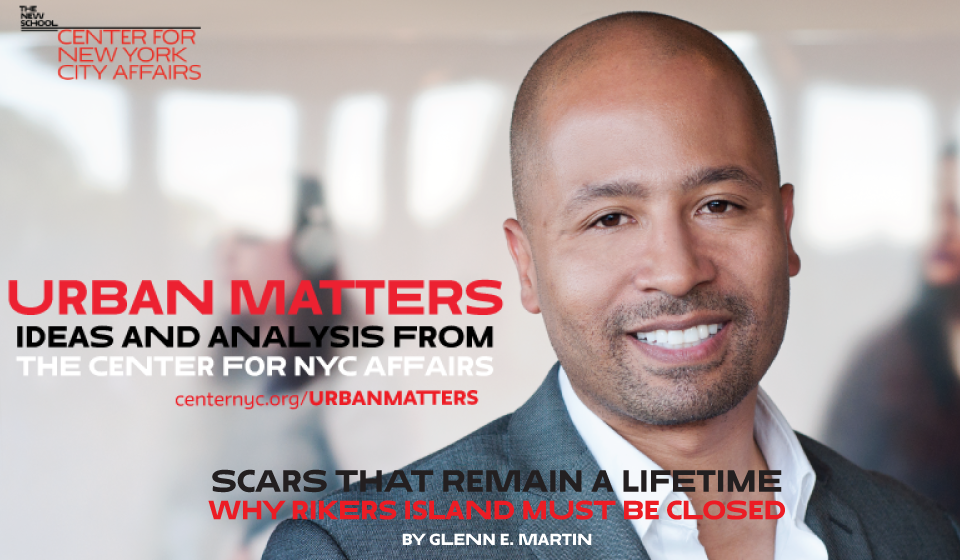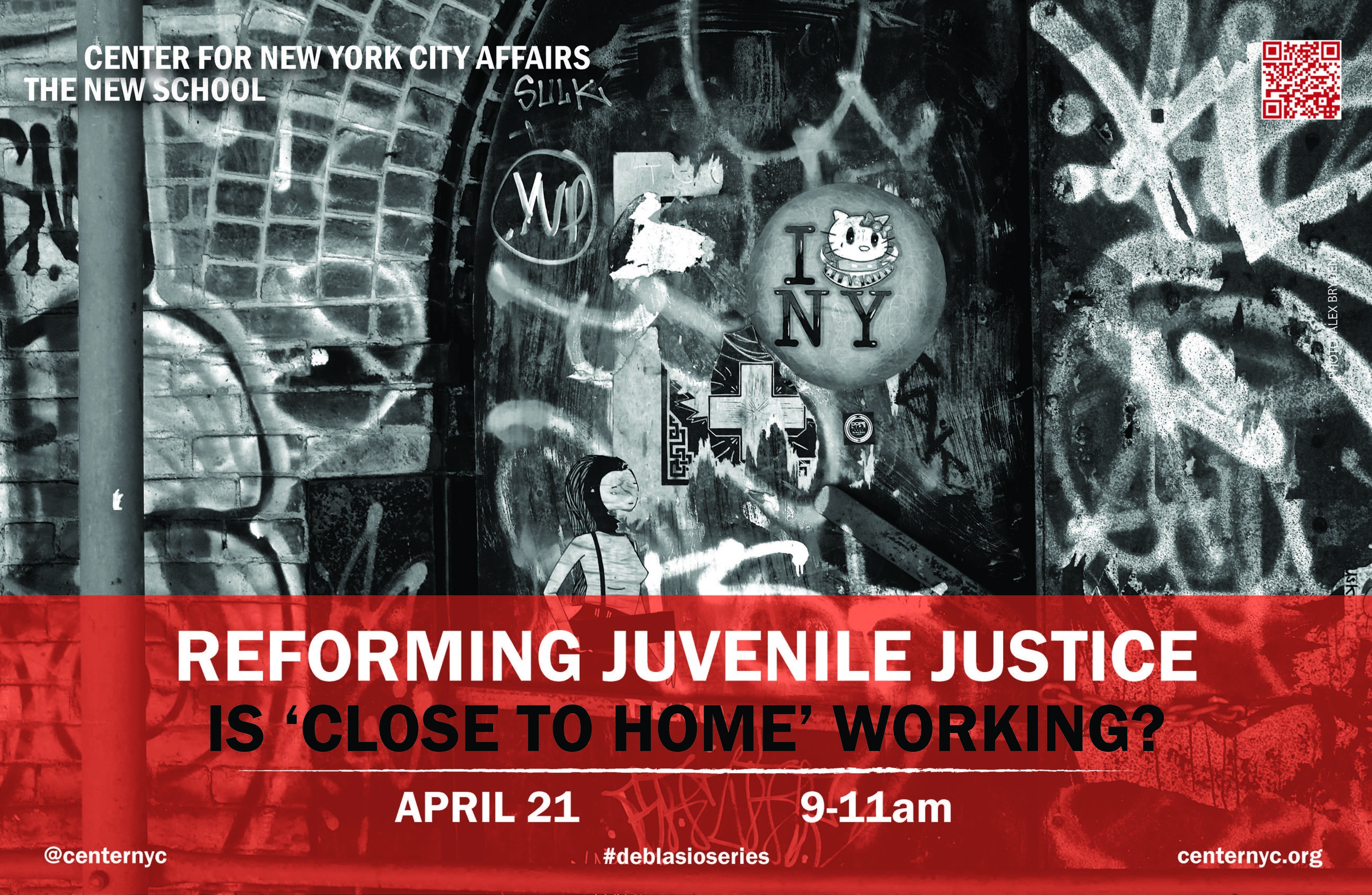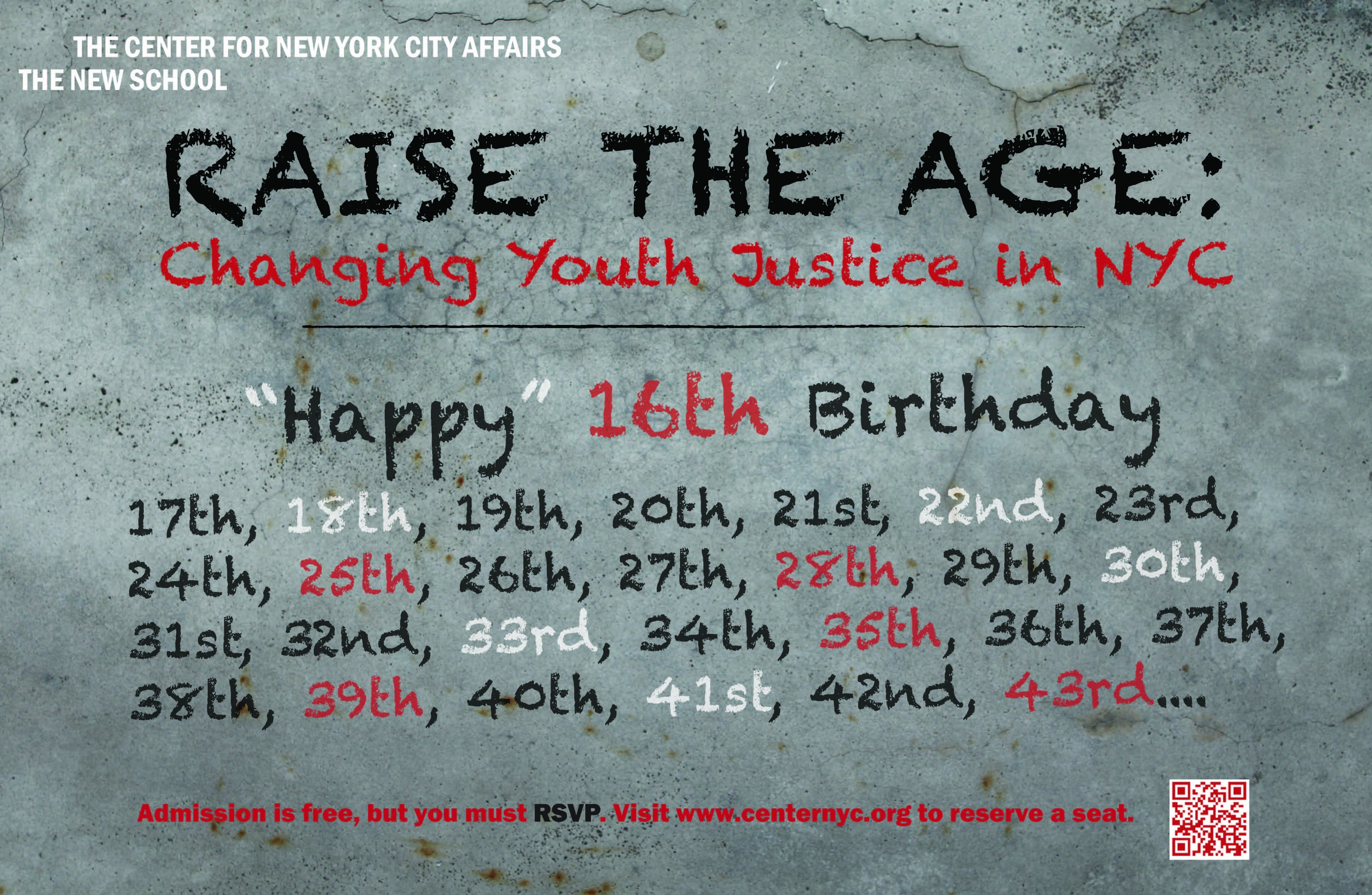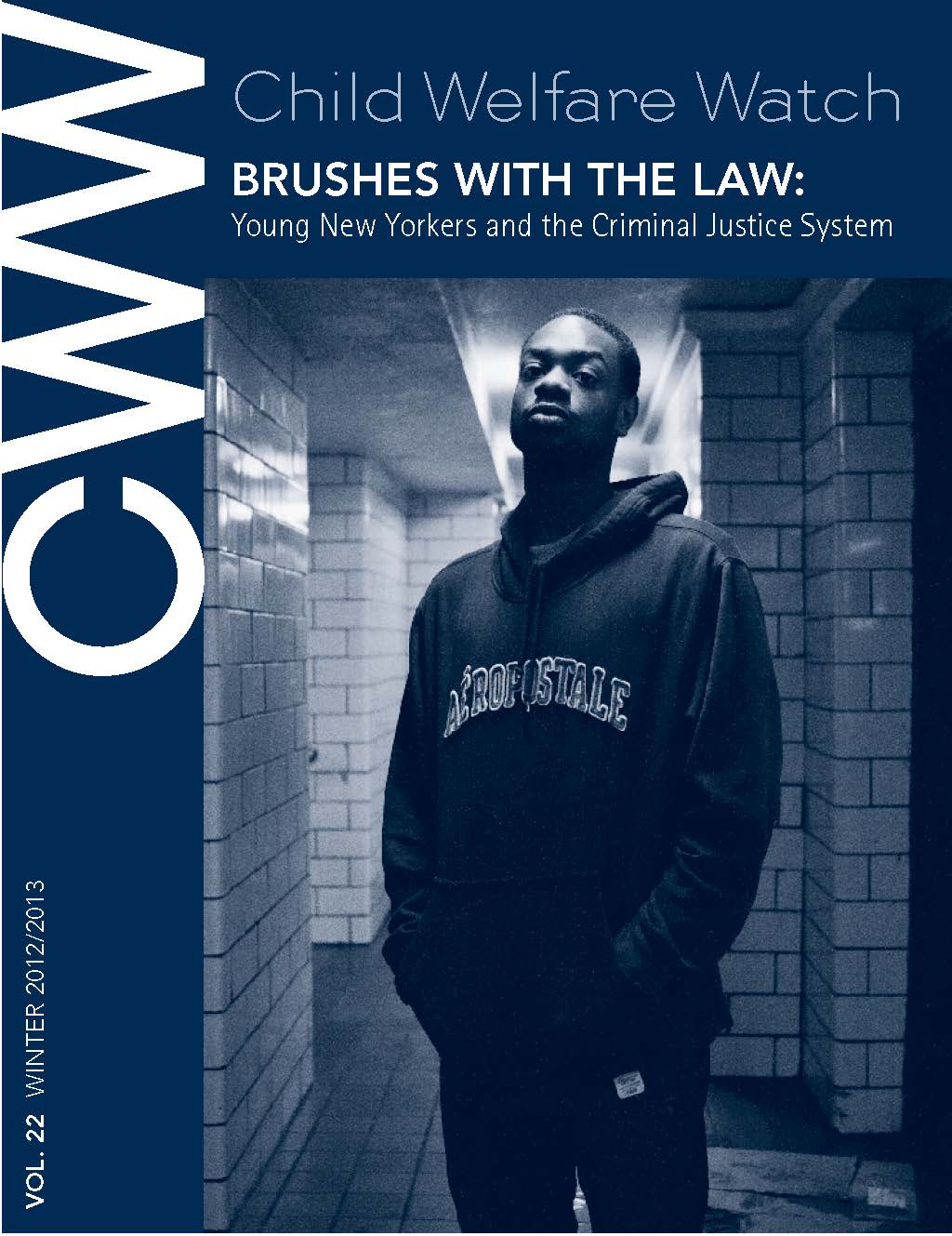In recent years, we have provided vital analysis to support effective public investment in mental health services for incarcerated teens, the launch of the Close to Home initiative, efforts to raise the age for prosecution as an adult, and broad public engagement on issues of incarceration and racial injustice. In the coming year, we will assess developments in policing, efforts to reform City jails, and a broad array of new programs for justice-involved youth and individuals with mental illnesses.
Urban Matters | juvenile justice
Keep Our Children Healthy. End the Use of Solitary Confinement.
By Julia L. Davis and Raysa S. Rodriguez
In June, press reports revealed that a 17-year-old with mental illness had been held in solitary confinement for seven months at New York State’s Hudson Adolescent Offender Correctional Facility in Columbia County. It wasn’t supposed to be like this.The “Raise the Age” reforms enacted in 2017 promised to establish developmentally appropriate settings for all justice-involved youth.
Urban Matters | Criminal justice reform | rikers island
My Art Got Me Through My Time: Portraits from Solitary Confinement
By Five Mualimm-ak
I have served over 40,000 hours in isolation at the New York City corrections facility on Rikers Island and in State prison facilities in Upstate New York. During my time in solitary confinement, I produced many portraits. By drawing faces, I tried to draw attention to others who were suffering as well and their reasons for being confined from humanity.
Urban Matters | Juvenile Justice
‘We Take the Gun Out of His Hand, and Place a Job in the Other’
Meet Ronald Robertson, better known by the name Powerful, the founder of Brownsville Think Tank Matters.
Powerful is one of a growing number of credible messengers – men and women with life experience of trauma, poverty, and incarceration – who head up community-based organizations in New York City that work with youth to reduce violence and end their involvement with the criminal justice system.
Urban Matters | Juvenile Justice
Raise the Age: Turning a Reform Law Into a Reality
By Elizabeth Powers
In April 2017, a landmark new law made New York the 49th state to acknowledge that 16- and 17-year-olds should not be automatically considered adults in the eyes of the criminal justice system. It was a hard-won victory for reformers and for many criminal justice practitioners, who had long decried the high human costs of setting the age of criminal responsibility so unreasonably low.
Urban Matters | Juvenile Justice
Life Lessons: The Difference Credible Messengers Make
By Elizabeth Walker
Mentoring programs rely on Credible Messengers to build trusting and transformative relationships with at-risk young people have proliferated, largely funded by City agencies like Department Of Probation and the Department of Health and Mental Hygiene. The resulting mentor-mentee relationships have, in many cases, changed the trajectory of young lives.
In 2016, a group of dedicated providers linked up with a progressive funder (the Pinkerton Foundation) and The New School to develop a college-accredited training program for Credible Messengers working in youth development. Called the Institute for Transformative Mentoring (ITM).
NEW INITIATIVE
Across the city, social service agencies are increasingly employing staff who’ve themselves had run-ins with the law as “Credible Messengers” to other court-involved youth. It’s a recognition of the powerful positive impact mentors who’ve had similar life experiences can have in changing young lives.
To foster this important work, the Center for New York City Affairs is pleased to announce the launch of the Institute for Transformative Mentoring (ITM). ITM is a training program focused on the professional and personal development of such Credible Messengers. It’s a semester-long course, developed with Credible Messengers and the help of training and education experts and foundation and non-profit leaders, that’s designed to enhance the practical skills of Credible Messengers and also further the healing of their own lives. ITM will support the work of this unique and growing workforce.
For more information, click here
Urban Matters
How Children Pay the Price for Over-incarceration
By Leila Morsy and Richard Rothstein
As many as one in 10 African American students has an incarcerated parent. One in four has a parent who is or has been incarcerated. The discriminatory incarceration of African American parents is an important cause of their children’s lowered performance, especially in schools where the trauma of parental incarceration is concentrated.
Urban Matters | Juvenile Justice
From Mean Streets to Meaningful Mentoring: Becoming a Credible Messenger
By Brandon Overby
As a young boy, I was a good kid. I got good grades and was always in the top classes in school. On the other hand, things were not so good at home. The only place I felt in charge was in the streets. The streets were not kind either. In 2008, I had just turned 15 years old and my best friend was murdered right in front of his door. Soon after, I began getting involved in the justice system.
Urban Matters | Criminal Justice Reform
Seven 'Raise the Age' Work-Arounds: Doing the Right Thing When Albany Won't (2016)
By Kate Rubin
Another legislative session has ended in Albany, and a 16-year-old who jumps a turnstile or smokes marijuana in public will still be arrested and prosecuted as an adult. Efforts to raise the age of criminal responsibility once again foundered in the Legislature. Other policymakers have a moral obligation to act where legislators have failed. Here are seven steps City and State agencies can take—right now—to protect children from an outdated, abusive criminal justice system.
Urban Matters | Criminal Justice Reform
Scars that Remain a Lifetime: Why Rikers Island Must Be Closed
By Glenn E. Martin
Less than 300 feet from the runways at LaGuardia Airport lies a longstanding and notorious stain on our city’s integrity: Rikers Island. On any given day, approximately 9,600 New Yorkers languish in its 10 jail complexes where they are exposed to a “deep-seated culture of violence,” in the words of a report issued last year by the US Attorney for the Southern District of New York. Brutality pervades the island, inflicting irreparable physical and emotional trauma on the men, women, and adolescents housed there.
Event | Criminal Justice Reform
Rikers Island: Reform It — or Shut it Down? (2015)
The Rikers Island jail complex has become a symbol of criminal justice dysfunction. Last year, The New York Times uncovered 129 serious injuries to inmates. The US Attorney for the Southern District of New York documented widespread abuse and neglect of teenagers in the jail's adolescent unit. And Mayor de Blasio described an environment so toxic that inmates are released “more broken than when they came in.”
The City administration has initiated reforms. But a growing number of community groups, advocates and elected representatives say that piecemeal changes are not enough. Their cry is getting louder: Shut Rikers Down.
Neil Barsky, founder and chairman, The Marshall Project; Elizabeth Glazer, director, Mayor's Office of Criminal Justice; Martin Horn, executive director, NYS Sentencing Commission; Khary Lazarre-White, executive director & co-founder, The Brotherhood/Sister Sol; Ann-Marie Louison, co-director of adult behavioral health programs, CASES; Glenn E. Martin, founder and president, JustLeadershipUSA; Charles Nuñez, community advocate, Youth Represent; Carmen Perez, executive director, The Gathering for Justice and co-founder of Justice League NYC; Jeff Smith, assistant professor of politics and advocacy, Milano School for International Affairs, Management, and Urban Policy; Scott M. Stringer, comptroller, City of New York; Moderated by Errol Louis, political anchor, NY1 News and host, "Inside City Hall"
Urban Matters | Criminal Justice Reform
Backwards on Purpose: The Wrong-Way World of Jobs and Prisons (2015)
By Jeff Smith
“You’ll be back, sh*tbird.” If I heard it once during my nearly year-long incarceration for federal election law violations, I heard it a dozen times. It’s what correctional officers (COs) told prisoners nearing their release date, especially those who had “slick mouths” or who otherwise created problems. “Jackasses like you are how I know I’ll always have a job,” one officer frequently said – his way of reminding us that not only did he expect us to return, but his livelihood depended on it.
Event | Criminal Justice Reform, National Politics
Mr. Smith Goes to Prison (2015)
The fall from politico to prisoner isn't necessarily long, Jeff Smith—a former Missouri State Senator—learned, but the landing is a hard one. Smith saw the power of millions of inmates harnessed as a source of renewable energy for America's prison-industrial complex, a system that exploits racial tension and bias, building better criminals instead of better citizens. In Mr. Smith Goes to Prison, he traces the cracks in America's prison walls, exposing the shortcomings of a race-based cycle of poverty and crime that sets inmates up to fail.
Report & Event | Criminal Justice Reform, Juvenile Justice
Reforming Juvenile Justice: Is 'Close to Home' Working? (2014)
In late 2012, New York City launched one of the most ambitious juvenile justice reforms in the nation: Rather than sending kids who commit low-level offenses to Upstate lockups plagued by histories of abuse and failure, the city opened its own network of small, secure group homes within the five boroughs and nearby suburbs. In this ongoing investigation, we look at the success and challenges of the "Close to Home" reform: Is the program living up to its promise? Are New York City kids better off?
Read our latest stories for a look at Close to Home programs and the young people who spend time in them.
Event | Criminal Justice Reform, Juvenile Justice
Raise the Age: Changing Youth Justice in New York City (2014)
New York is one of just two states in the country that automatically treats 16- and 17-year-olds as adults in the criminal justice system. In recent years, advocates and legislators—including the state’s chief judge—have pushed to raise the age of criminal responsibility to 18. Now, in the midst of a national scandal over the treatment of adolescents at the Rikers Island Jail, we convene the experts for a discussion of the movement to Raise the Age: How will the influx of adolescents impact the city’s newly reformed juvenile justice programs? How can the system ensure that 16- and 17-year-olds get their best shot at success?
Hon. Edwina Richardson-Mendelson, administrative judge, New York County Family Court; Commissioner Ana Bermudez, NYC Department of Probation; Sonja Okun, founder + executive director, exalt; Soffiyah Elijah, executive director, Correctional Association of New York; Kevin Williams, participant, exalt; Charles Nunez, community advocate, Youth Represent; Abigail Kramer, associate editor, Center for New York City Affairs
Events | Criminal Justice Reform, Racial Equity, New York City Politics, National Politics
Ferguson + Staten Island: the Roots, the Reality, and the Response (2014)
This summer marked a turning point in community and police relationships in two very different cities. With the media focus on the tragic deaths of Eric Garner and Mike Brown, people across the country have begun to reflect on the complex relationships that communities often have with police, and on the underlying causes of these deaths.
Rembert Browne, staff writer, Grantland; Patricia Bynes, committeewoman, Ferguson township; Peter Coy, economics editor, Bloomberg Businessweek; Eugene O’Donnell, lecturer, John Jay College of Criminal Justice, CUNY; Vincent Warren, executive director, Center for Constitutional Rights; Jeff Smith, assistant professor of politics and advocacy, The New School
Ferguson in Black and White: A Discussion (2014)
A discussion of the recent events in Ferguson, MO – the aftermath of the death of Michael Brown, the Grand Jury decision not to indict the police officer involved in the shooting, and the tensions of racial and class inequality simmering and boiling over in St. Louis and other cities across the U.S.
Jeff Smith -- St. Louis native and author of the e-book Ferguson in Black & White; Joel Anderson, senior national reporter, Buzzfeed; Justyn Richardson, treasurer, New Black School; Robin Hayes, assistant professor of nonprofit management and urban policy, The New School
Event | Criminal Justice Reform
Surveillance City: The War on Drugs in Urban Neighborhoods (2014)
The War on Drugs has created a powerful surveillance state in America's most disadvantaged neighborhoods. High-tech techniques criminalize entire blocks and transform informal community networks into liabilities for local residents as police use family relationships to demand information, pursue suspects and threaten incarceration. The presumption of criminality takes a relentless toll.
Alice Goffman, assistant professor of sociology, University of Wisconsin-Madison; author, On the Run: Fugitive Life in an American City
Jeff Smith, assistant professor of politics and advocacy, Milano School of International Affairs, Management, and Urban Policy, The New School
Jamelle Bouie, politics, policy, and race reporter, Slate
Event | Criminal Justice Reform, Juvenile Justice
Youth, Justice, Police and NYC's Neighborhoods (2014)
There's been a sea change in New York City juvenile justice policy and police practices over the last two years: Courts now place most teen delinquents in city programs close to home, rather than upstate; and police have sharply reduced the use of stop and frisk, a tactic that overwhelmingly targeted young men of color. Policymakers in the new administration of Mayor Bill de Blasio seek to drive change even further, to improve police-community relations and strengthen juvenile justice programs while also securing public safety.
Gladys Carrion, commissioner, NYC Administration for Children's Services; Joanne Jaffe, bureau chief, New York Police Department; Chino Hardin, field trainer/organizer, Center for NuLeadership on Urban Solutions; Gabrielle Prisco, director, Juvenile Justice Project, Correctional Association of New York
Chris Watler, project director, Harlem Community Justice Center at Center for Court Innovation; Andrew White, director, Center for New York City Affairs, The New School


